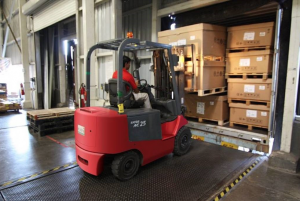by: Bob Goldin | Gary Karp | Rob Veidenheimer | Barry Friends
January 11, 2019
 Labor shortages are widespread and growing in severity. They are causing major disruptions to business efficiency and costs to rise, in some cases fairly dramatically.
Labor shortages are widespread and growing in severity. They are causing major disruptions to business efficiency and costs to rise, in some cases fairly dramatically.
Foodservice is a labor-intensive industry that directly employs in excess of 15 million people. As such, it is being heavily and adversely impacted by labor shortages in critical areas. A chronic shortage of Class A CDL drivers and, to a somewhat lesser extent, warehouse personnel and management is leading to declining in- and outbound service levels (especially late deliveries). Understaffing is forcing restaurants and other establishments to reduce operating hours and/or capacity even at peak hours. And menu price increases will accelerate due to systemwide labor cost increases, which in many cases are 10+% vs. last year, widening the price gap between food at home (FAH) vs. food away from home (FAFH), since labor costs impact retail grocery to a lesser degree.
Understandably frustrated with suppliers’ falling service levels on inbound loads, a number of major distributors have instituted “penalties” for below target performance on selected KPIs. This is not a new phenomenon. Distributors have employed similar initiatives in the past. While some suppliers “pushed back” on these programs, the “punitive” approach generally led to enhanced “collaboration” to improve service performance.
Given the economy, political climate and the systemic nature of the labor crisis (and we use the term “crisis” deliberately), we seriously question the advisability of penalty programs at this point in time. From our experience, most suppliers are highly focused on meeting or exceeding their customers’ service requirements and generally provide outstanding service on a consistent basis. It is in their best interest to do so. But they – suppliers – are “victims” of late deliveries and shortages by their own suppliers and transportation partners. Also, customers’ service requirements are often extremely strict – arguably too strict in some instances.
We do not see labor market conditions improving in 2019. If anything, we will experience more product supply disruptions, rising costs that disproportionately weaken operator profitability, and more buyer/seller friction resulting from service issues. This being the case, we strongly believe that this is a “share the pain” environment that calls for true collaboration among trading partners to minimize supply chain and operational “pain points” resulting from the labor scarcity. This approach should yield positive results and improve trade relations. Potential solutions that we have seen successfully implemented to address these challenges include collaborative modifications to:
- Order lead times
- Order volume requirements
- Late order quantity adjustments
- Delivery/receiving windows
- Pallet configuration parameters
- Pack size and weight
- Routing procedures
- Loading and unloading processes
- Inventory and safety stock levels
- Payment terms and incentives
- SKUs/assortment optimization
- Automation
- LTOs/promotions
As the labor crisis continues to apply pressure to the foodservice industry’s (and most industries’) operating efficiency and profit pool, engaging with supply chain partners to develop aligned solutions will be critical to success. Please let us know if you would like to discuss this topic in greater detail or explore how Pentallect can help address these issues.
Contact Us
